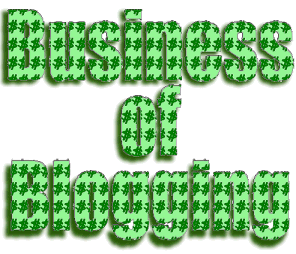Blogging is About Writing – and Not
Blogging is about writing. That is a fact. You can video blog, podcast, and do all kinds of fun things with your blog, but it is the writing that makes or breaks a blog. What you say in the blog posts, descriptions of visual and audio elements, and what words you offer search engines for their indexing to help people find your blog.
However, blogging is not just about the writing, albeit it is a large part. Blogging today is about so much more. Are you ready? Do you know all the things you have to know about blogging before you start blogging? Or after?
Whether you are a new blogger or long time blogger, these are the things you are going to have to learn about in order to blog in today’s world.
Copyrights are Your Rights
 When you publish something, anything, on the web of your own creation, it is copyrighted. You own it. You control it. What you choose to do with it is up to you. How it is used by others is also up to you.
When you publish something, anything, on the web of your own creation, it is copyrighted. You own it. You control it. What you choose to do with it is up to you. How it is used by others is also up to you.
A blogger today doesn’t just concentrate on creating original content, though they should. They spend time making sure no one steals their content through autoblogging and feed scrapers. Readers and fans send them emails and leave comments warning them of plagiarism and copies of their blog posts they find elsewhere. It’s a growing industry to copy and make money from the hard work of others, and only the scraper benefits.
It’s not complicated to protect your content, but it does require some specific steps that you can break down into manageable tasks do do daily or weekly to stop content theft. When you protect yourself, you are also protecting hundreds or thousands of others. It’s my dream to have an Akismet-style, community action response splog and scraper blacklist that we can all contribute to, but until then, we have to do this ourselves.
I recommend you read What Do You Do When Someone Steals Your Content, and Jonathan Bailey’s fantastic articles, 5 Content Theft Myths and Why They Are False and The 6 Steps to Stop Content Theft for the basics of copyright as it applies to blogging, and follow their links and resources for more information. Jonathan Bailey of Plagiarism Today covers this topic extensively.
It is your responsibility to learn how copyright works and doesn’t work for you. You need to know and decide what is allowable for usage of your content, and how to copy others’ content within the Copyright Fair Use restrictions and limitations so you don’t plagiarize someone’s hard work.
Publishing
Blogging is about publishing. It is about making your work public. It is about exposing your writing, photography, artwork, video, poetry, stories, and creative expression to the world. And it’s a big world.
As a publisher, you have rights and responsibilities for what you publish beyond copyright protection. If you defame, harass, libel, or publish anything that hurts another by national and international laws, you can be held responsible and penalties can be taken against you. In some countries, this could mean imprisonment or worse.
Learn what your country’s laws are concerning censorship, publishing, and editorial content. Some countries protect bloggers under Journalist laws and regulations. Most don’t. Find out if the laws in your country will protect you or bust you for breaking them. Then learn about the international laws as a blog can be read by anyone, anywhere, anytime. If your blog’s content crosses borders, you may be libel in that country.
Soon, international Internet laws will be in place that prevent and protect web users as well as bloggers. Keep watch and pay attention to the changes and evolution of these laws so you can have a say in how much control you want your government to have over the web – or not.
For more information on blogging rights, see:
- Electronic Frontier Foundation – Legal Guide For Bloggers
- Blogging Rights and Obligations
- Electronic Frontier Foundation (EFF)
- NetDemocracyGuide.org
Blogging as a Business
 The moment you say to yourself that you want more blog traffic or you put an ad on your blog, your blog becomes a business. As a business, you need to know about business and how it works.
The moment you say to yourself that you want more blog traffic or you put an ad on your blog, your blog becomes a business. As a business, you need to know about business and how it works.
When you blog for business, you need to know public relations, marketing, advertising, merchandising, demographics, accounting, and other business skills and practices. A blog can be a part of your business, or it can be the driving force of your business marketing. Either way, you have to know about business if you include your blog in business activities.
There are many sites and blogs offering extensive information on the business of blogging. A few of the most popular include:
- Problogger
- Copyblogger
- John Chow
- Quick Online Tips
- Daily Blog Tips
- Lorelle on WordPress
- Dosh Dosh
- Performancing
- Weblog Tools Collection
- Blog Herald
- Blogging Pro
- Liz Strauss of Successful-Blog
- JohnTP
- Engtech of Internet Duct Tape
- Chris Garrett
- Bloggers Blog
- Business Blog Wire
Blog Design
As much as your blog is about your blog content, it’s about your blog’s design. A lot of work goes into the pretty as well as the functional on a blog, taking you into areas of code and design criteria way beyond words.
While you may fuss and fidget with a text widget to get a set of links, pictures or words to line up just the way you want them to appear in your sidebar, professional web designers are fussing over every pixel of space in front and behind a web page design.
Some top blogs about web design you may want to learn from and follow include:
- A List Apart
- Smashing Magazine
- 456 Berea Street
- Meyer Web
- Simple Bits
- Pearsonified
- CSS Beauty
- Snook.ca
- Bartelme Design
- The Man in Blue
- Andy Budd
- Particle Tree
- Warpspire
- Brian Gardner
- Sitepoint Design Blog
- The Undersigned
The Art of the Blog Conversation
It isn’t about what you write on your blog. It’s about the blog conversation. It’s about what other people write on your blog, too.
Many of us are still writing as if we were writing for our sixth-grade teacher, writing in complete sentences, complete thoughts, and fussing over every spelling and grammar error potential. These are not writings that encourage a conversation. They complete one.
In order to be a part of the blog interactive community, it’s about starting a conversation, not finishing one, with your blog.
Some top blog conversation teachers and experts and articles to learn from are:
- Liz Strauss of Successful-Blog
- Seth Godin’s Blog
- Business Blogs: How to Build A Better Blog
- Caroline Middlebrook – Do You Have a Blog Commenting Strategy?
- Copyblogger
- Search Engine Guide – Want More Comments on Your Blog?
What Did You Have to Learn About Blogging That You Didn’t Think You’d Have to Learn About Blogging?
If you have been blogging for a while, what have you had to learn about that you didn’t think you’d have to learn about when you started blogging?
The author of Lorelle on WordPress and the fast-selling book, Blogging Tips: What Bloggers Won't Tell You About Blogging, as well as several other blogs, Lorelle VanFossen has been blogging for over 15 years, covering blogging, WordPress, travel, nature and travel photography, web design, web theory and development extensively as web technologies developed.


Blogging has re-emphasized to me the benefits of sharing and giving freely. And as I’m a company of One, it gave me lots of incentives to learn how to hack php myself so I can create the exact look/feel that I want.
Enjoy,
Barbara
I have to agree with Barbara.
Blogging has taught me how to actually use HTML, JAVA, etc., as well as internet marketing (something most college courses could not teach you).
But the best thing about blogging is that it has expanded my view of the world–as well as my friends–and now I can honestly say that I have a greater appreciation of this planet thanks to my stepping out into the blogosphere many years ago.
I have learned that under no circumstances am I supposed to publish an email address, due to scrapers using it for spam. I have also learned that bloggers wear so many hats at one time, it’s almost unbelievable.
I’m still learning the game and the rules, but I believe that there is wiggle room to create your own rules and your own way of accomplishing one’s set goals.
One last thing I have learned is that, the ingredients for success are different for every blogger. Sure, everyone has a guide they have written which claims it helped propel them to success but if I were to follow that guide letter for letter, I might not end up with the same result.
Can’t wait to produce an article called the 10 Blogging Don’ts.
Lorelle, you have a knack for baking and setting on a digital cookie sheet the lumps of dough in others’ minds. I was just thinking about this topic the other day but couldn’t articulate it well.
Blogging *is* about writing – about composition – the most successful bloggers tend to be the ones who have honed those skills the most.
I’ve learned that it’s okay to feel like I can’t concentrate as a blogger. There is just SO much to think about – design, content, promotion, networking, SEO, traffic, sales, reputation, community, reading, email, IM, phone, etc. And it’s nearly impossible to do tasks completely, one at a time. I’ve accepted that I’m a plate-spinner and that some plates will fall and break, and that sometimes other people will misjudge my spinning efforts.
And maybe above all, I’ve learned the importance of vision coupled with diligence. I know what it’s like to work at a computer until your mind and body ache just as if you had been farming all day. I know the pain. And I know the joy of watching a job well done satisfy others.
Thanks for the spark. Hope to see you again at SOBCon08.
My hero! You’re right. I’ve been thinking about trying to really define blogging – in the reality of the blogging experience beyond just the blog writing – and this is my first attempt. There is so much to know beyond writing skills, and knowing this makes or breaks your ability to blog your way to success, whatever your definition of success means.
And I, too, have suffered from many a day of puter butt. Can’t way to see you at SOBCon!
Puter butt. That’s a good one!
@Easton Ellsworth:
Pronounced “pewter butt” by the way. :D
I’ve recently set up a blog and this article was just was I needed to wrap my brain around what I recognized was two very different but integrated tasks – providing useful content and the technical tasks – making sure the hard work I put into my posts isn’t used without credit and making sure my blog is “user friendly” so people can find the information they want as well as comfortable enough to start a dialogue or simply ask questions.